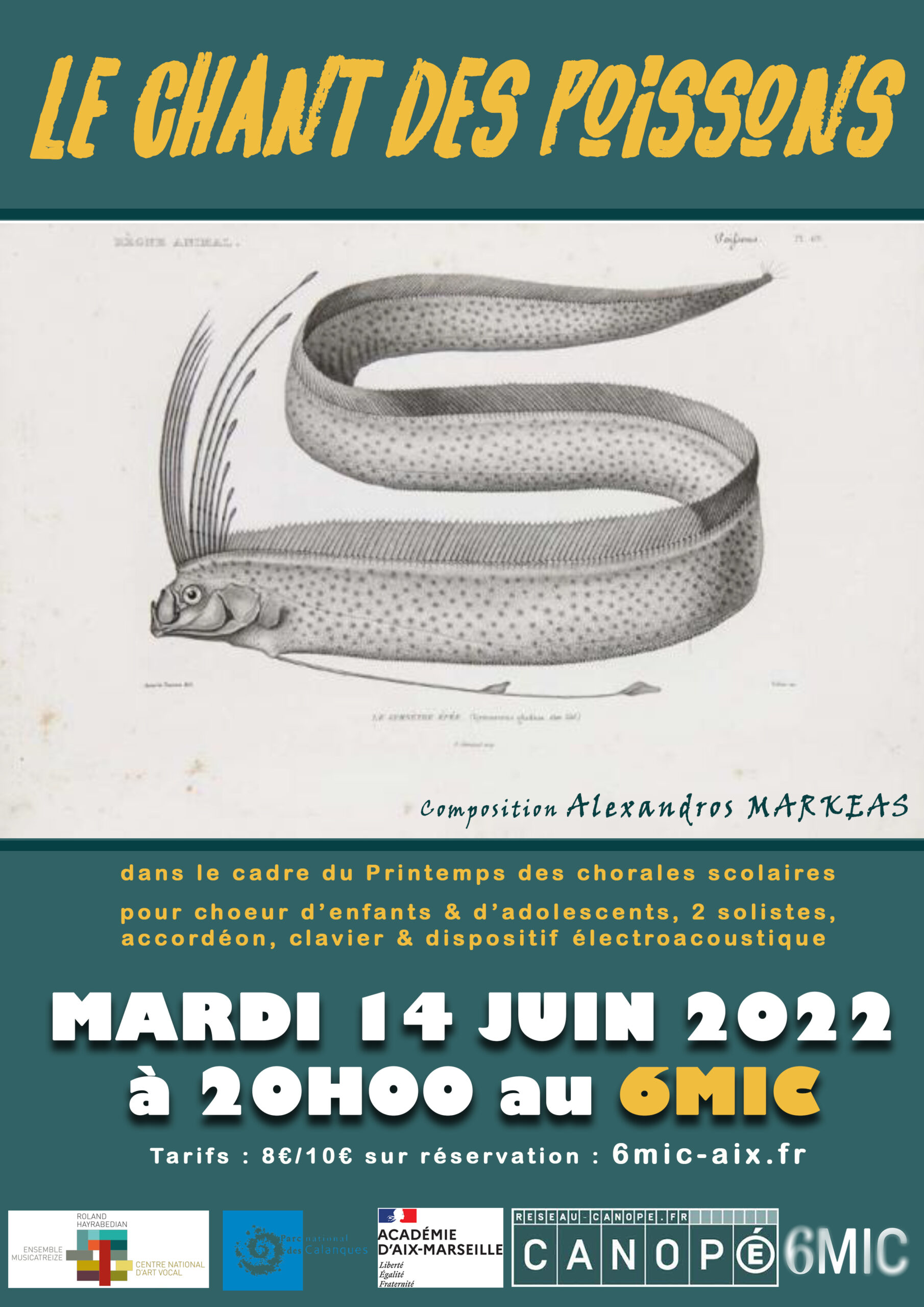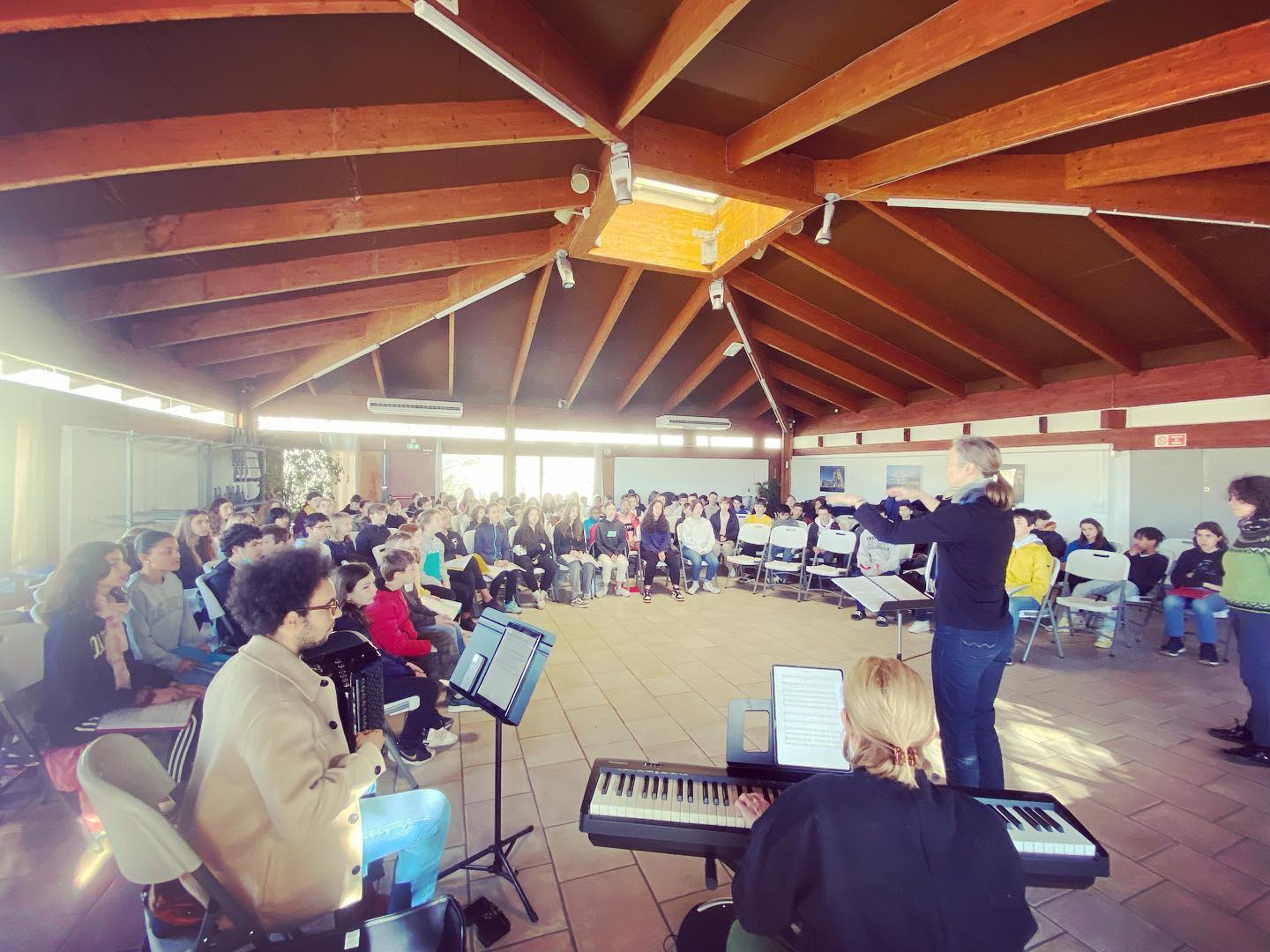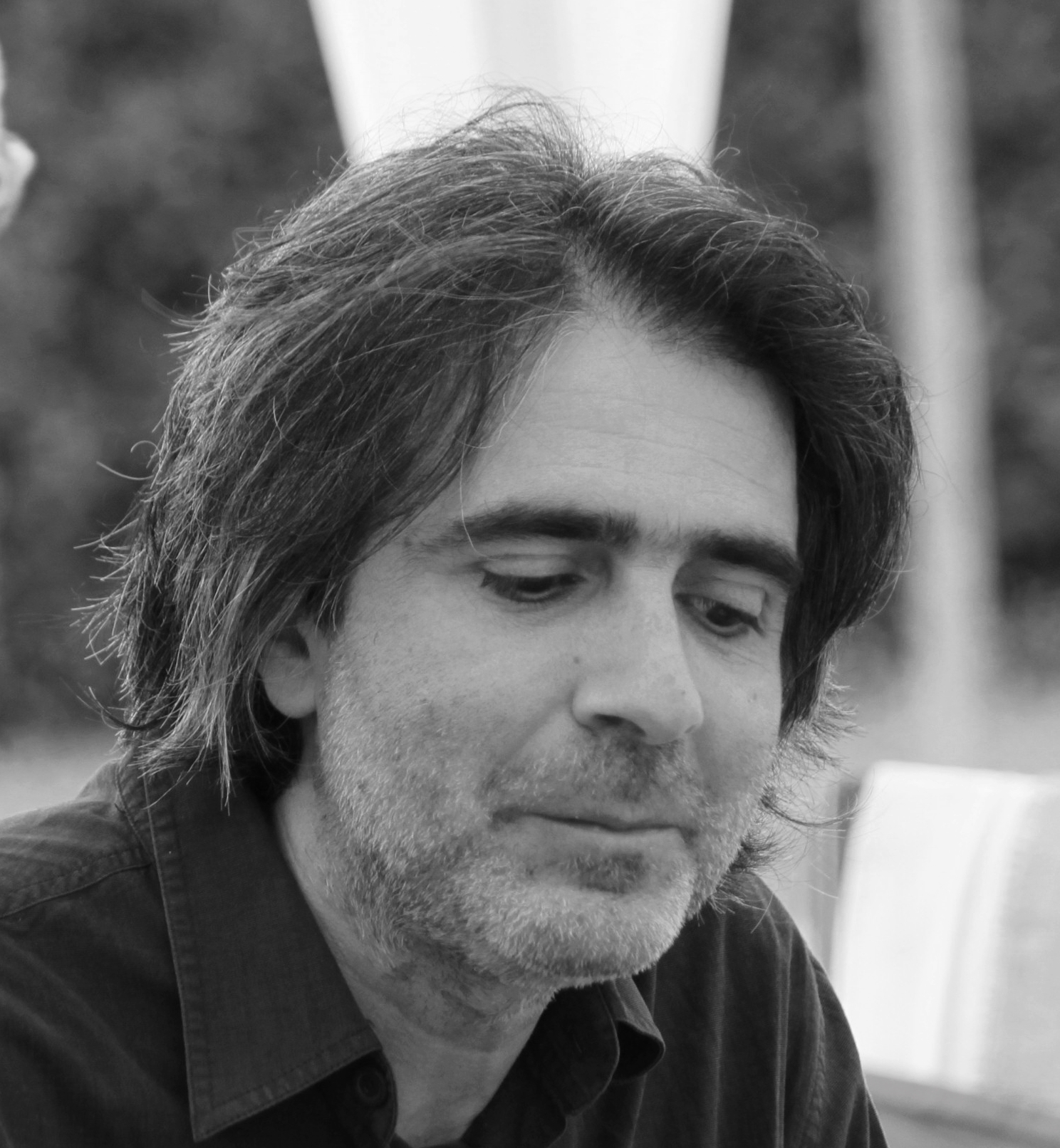Fish songs (le chant des poissons)



Musicatreize Ensemble
Alice Fagard, mezzo-soprano
Patrice Balter, bass
Théo Ould accordion
Marine Blassel keyboard
Alexandros Markeascomposer and electroacoustic apparatus
College choirs: Longchamp, Versailles, Le Ruissatel, Les Gorguettes, Château Double
Direction Daria Kucevalova
Alexandros Markeas, Le Chant des poissons
Premiere
The project is part of the national development programme for choral singing in secondary schools.
A scientific, civic and artistic educational project in partnership with the Calanques National Park.
Fish produce a wide variety of sounds to communicate with each other, organized as a chorus. They use their swim bladder to produce these sounds. This major scientific discovery of the existence of halieutic sound communication began in 2013 with the CHORUS project bringing together several marine research laboratories around the world, including the Parc National des Calanques, under the aegis of the Grenoble INP Foundation.
Beyond the simple “fish song”, the entire underwater soundscape has since been analysed, with new discoveries: during the reproduction period, crustaceans, by snapping their shells, waving their antennae or pressing their suckers, also make sounds intended for communication.
This raises the opposite question: if the underwater noise environment is so important, what about the human noise generated by motorboats? What are its impacts? If cetaceans came so close to the coast during the containment, perhaps it was because of the (temporary) closure of the maritime highway.
